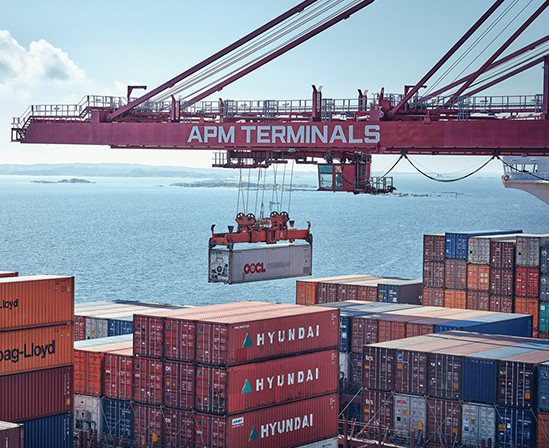Using a game theory approach, the latest port study of PortEconomics co-director Theo Notteboom and Cui Han (University of Antwerp, Belgium) analyses a situation in which the government imposes a certain emission tax on vessels and port operations for emission control in port areas.
Two ports are considered: a purely private port and a landlord (partial public) port. These two ports are in Cournot or Bertrand competition or cooperation with differentiated service.
The authors’ model outcomes lead to the following conclusions. First, the optimal private level of port 2 under Cournot and Bertrand competitions varies between fully private and highly public concerned port, while government will prefer a highly public concerned or close to highly public concerned port in the cooperation scenario. Second, government will have to make more and stricter efforts to enhance environmental protection in the situation of port cooperation (monopoly) than in the case of inter-port competition, and all the optimal emission tax should be always lower than the marginal emission damage.
Third, port privatization has a non-monotonous effect on ports’ environmental damage in the inter-port competition scenarios and a monotonous decreasing effect in the cooperation scenario. Fourth, the total emission tax revenue is always higher than the overall environmental damage in the cooperative scenario, and it may or may not be able to cover the whole environment damage in Cournot and Bertrand competitions. Finally, the government may face a trade-off among environmental protection, maximizing social welfare, satisfying individual motivation, when considering port cooperation (monopoly).
The methodological port study has recently been published in the academic journal Transportation Research part D: Transport and Environment and the authors’ version can be freely downloaded at PortEconomics.












